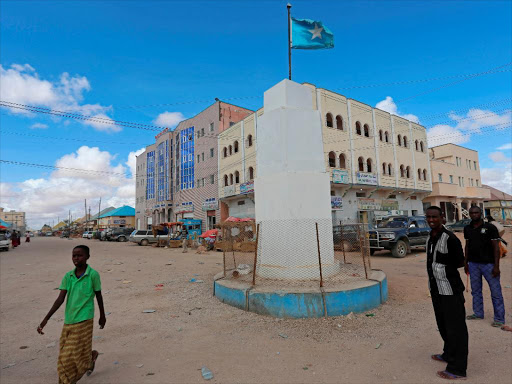By Otham A. Farole and Warsame D. Osman
AMNI Centre for Security Analysis and Development
Since Somalia central government collapsed, Mudug region has experience major clan conflicts, Puntland/Galmudug armed conflict over resources and border disputes. Besides that, al-Shabab benefited from the region’s clan and political divisions and infiltrated the communities in the region. Therefore, the group orchestrated and carried out the worst terrorist attacks in Somalia after Mogadishu since 2008. Where the state and federal authorities’ officials, police and military commanders, journalists, clan elders, MPs and business elites were killed in the region, through various terrorist attacks, including targeted assassinations, suicide bombings, car bombings and complex attacks. The groups exploited the region’s law enforcement and criminal justice system weaknesses. Regional and international military partners played a significant role in defeating al[1]Shabab in Mudug region over the past decade. However, Puntland and Galmudug have never a had security cooperation in the past.

After long years of terrorist attacks from al-Shabab, both communities and states in either side of Galkayo, have began to cooperate on security and ultimately began joint counterterrorism operations, where seven al-Shabab’s Amniyat networks operating in Galkayo since 2008 were detected. Puntland authorities executed eighteen al-Shabab convicted operatives in June 2021. The joint counterterrorism operations in Mudug is effective so far, but there is strong ambiguity of the sincerity about the unprecedented join counterterrorism operations between the two states.
The political prospects of up-coming federal election are hindering the pure intention needed on current campaign against al-Shabab in Mudug region. In another way, security paradigm shift experts in the region suggest that whether the new security collaboration between the neighboring states became successful or unsuccessful depends on the outcome of upcoming federal election. Which means, it is premature to analyze without knowing whether underpinning political motives that drive both states Puntland and Galmudug to have a join operation are long-term and comprehensive or are just trojan horse for up-coming federal election.
It is clear that Puntland President Mr. Dani is running for the Federal President of Somalia. It is also known that Puntland fight against al-Shabaab in Bari region is subtle and neglected. Al-Shabab and Daish operations are getting stronger and intensifying in the region. On May 5, 2021 al-Shabab stormed Bosaso (Bari region) jail and freed 400 prisoners, where two third of them were al-Shabab and Daesh members. Therefore, the dichotomy between Puntland war on terrorism in Bari region and Puntland war on terrorism in Mudug region, shows that Puntland involvement fighting with al-Shabab in Galmudug soil is just temporary and political. Security analysis advice also, that current joint counterterrorism operations between the two states can only succeed if it is not amalgamated with the shortcomings of campaign politics, the political agenda behind on this operation should only remain one, the eradication of al-Shabab from Mudug region.
Ineffective and Weak Government Institutions in Mudug Region
Puntland law enforcement agencies in Mudug region had been ineffective since its inauguration. Dysfunctional law enforcement in the northern side of the region was drawn from inadequate leadership of the Darwish and police forces, resources, and lower salaries which not got paid regularly – the southern side of Mudug is below Puntland in the context of effective law enforcement. Likewise, Puntland had weak criminal justice system in the region, which had similar problems with the police and Darwish forces. Weak prison systems that had a history of inmate escape, prison breaches, clans attack prisons to release their fellow detainees.
Endemic corruption hindered justice system, taking or receiving bribery from criminals, nepotism, favoritism had been norm that renders al-Shabab criminals to groom commendable people to join. In contrast, law enforcement agencies and criminal justice systems were poorly cooperated. In addition, clans have heavily armed clan militias, thus, clan elders strongly protect their clansmen’s interests even defending suspected al-Shabab elements who the local authorities detain for having links with al-Shabab. Therefore, Mudug clans (Puntland division) had been the biggest challenge for Puntland government to combat al-Shabab genuinely in the region. However, al-Shabab is encouraged by the fragmentation of government institutions, clans, and the broader community.
Despite these challenges, Puntland authorities had been striving to combat terrorism and organized crimes in the region, which achieved limited success. Puntland administrations never prioritize the importance of Galmudug’s cooperation in countering al[1]Shabab in Mudug region. Puntland in the past fell short having a strong and effective police and military forces in the region, that could implement a long term and comprehensive policy and strategy, but rather adopted to deploy police and military forces to the region from other parts Puntland. These dispatched forces carried out short term planned security operation and then leave after a while.
Otham A Farole and Warsame D. Osman
AMNI Centre for Security Analysis and Development
Email: info@amnicentre.com

Leave a Reply